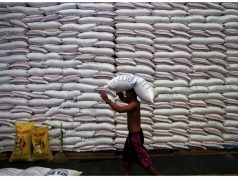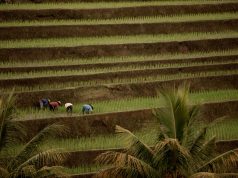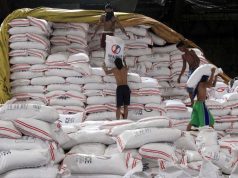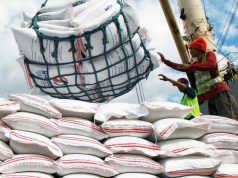MANILA, Philippines – To brace for the calamity-prone lean months of July to September, the Philippine government has decided to beef up the country’s rice buffer stock through importation.
This was announced by Cabinet Secretary Leoncio Evasco on Tuesday, May 16, after his meeting with members of the National Food Authority (NFA) Rice Governing Council, which he chairs.
According to the council, the NFA’s current rice stockpile of 250,000 metric tons is only good for eight days, which is short of the required 15-day buffer supply.
The buffer stock scheme is a government plan to stabilize prices in volatile markets such as in the trade of agricultural products. It also aims to ensure food supply and prevent farmers or food producers from going out of business.
The Legislative-Executive Development Advisory Council has mandated the NFA to maintain a rice buffer stock good to last for 15 days at any given time and for 30 days at the onset of the lean months.
The country has a daily rice consumption rate of 32,700 metric tons equivalent to 654,600 bags of the staple, according to the NFA, the government’s food security watchdog.
Evasco said the rice importation would be through private scheme, which he said would be more transparent than government-to-government schemes that had been “abused” and “used” for “corrupt” activities.
Evasco said the council’s decision to import rice through private entities already had a go-signal from President Rodrigo Duterte.
“Given the opportunity to listen to the position of the NFA Council kung bakit kailangan talagang mag– import [on why there is really a need to import]…the President said this time, the NFA will not have the monopoly of importing rice so we should open importation through the private sector,” the Cabinet secretary said.
As of Tuesday, the government has not yet decided on how much rice will be sourced abroad, pending recommendation on the volume of imports from the NFA committee.
Also, the NFA council gave the green light to private traders to import 805,000 metric tons of rice under the Minimum Access Volume (MAV) Country Specific Quota for 2017.
MAV refers to the volume of a specific agricultural product that is allowed to be imported with a lower tariff as committed by the Philippines to the World Trade Organization under the Uruguay Round Final Act.








